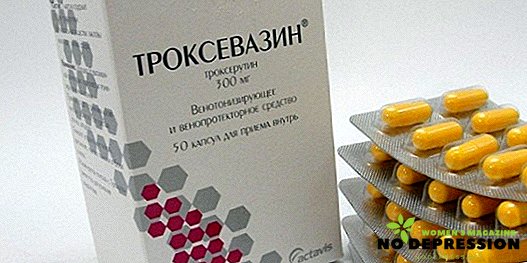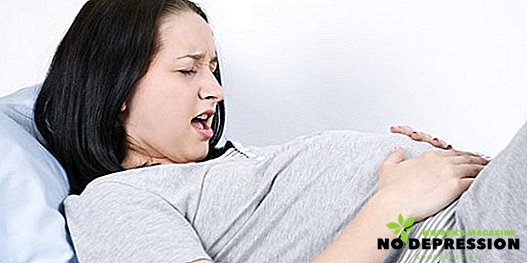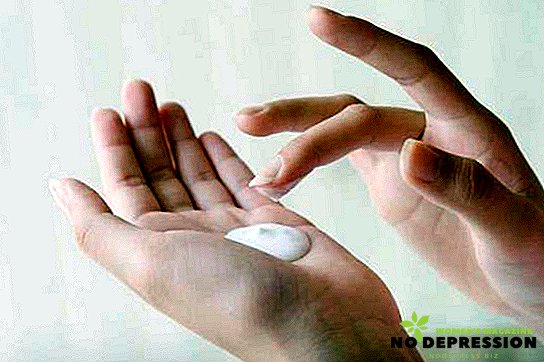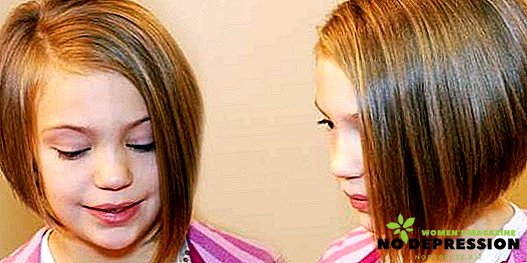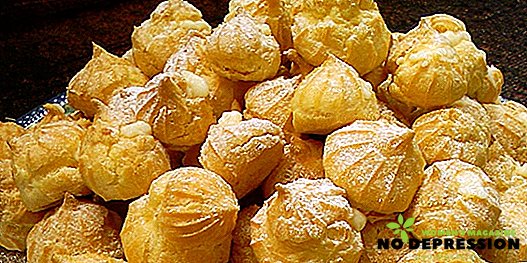Cough can be a symptom of many diseases. A dry cough without fever should make a person alert. It is necessary to undergo examination in a hospital when this manifestation appears without obvious reasons.
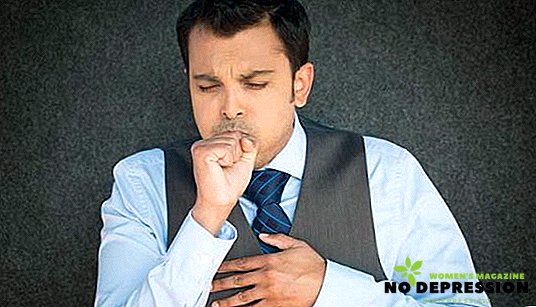
Types of dry cough and its causes without temperature
Causes of coughing are inflammation associated with infection, allergies, or autoimmune diseases. Also, in some cases, it may be an allergy or a natural reaction to pathogens entering the pharynx and bronchi.
If there is no temperature, then most often the cause of coughing is:
- early viral infections (cold, flu);
- whooping cough;
- bronchitis;
- allergy;
- benign formations;
- malignant neoplasms;
- thyroid disease;
- neurosis;
- bad ecology.
Infectious diseases at the initial stage may not cause fever, but a cough may already appear. If a person has coughing without fever for a long time, you need to undergo a full examination, since all this can be a manifestation of a dangerous disease.

Dry cough is divided into several types. The differences are in the severity and frequency of coughing. There are the following types:
- paroxysmal (occurs only at certain hours);
- permanent (present throughout the day);
- mixed.
Also, differences may be in the severity of cough. In the acute course of the disease, it is strong and incessant. If a person suffers from a chronic disease without fever, then it occurs only under certain circumstances.
Without fever, a person most often encounters a paroxysmal cough. It arises only from external irritation or only at a certain time, for example, at night. It delivers a lot of discomfort, as the attack does not subside for a long time.
The cause of its occurrence may be lesions of the bronchi and upper respiratory tract. While in the bronchi, pleura, larynx or pharynx will be an irritant - a person will suffer from coughing.
A night cough can be a symptom of tuberculosis, and therefore requires first to undergo fluorography. Also, the survey should include a visual inspection, listening, blood test.
Treatment of dry cough in an adult
Treatment is prescribed immediately after diagnosis and determination of the root cause of the disease. Depending on the severity of the pathology, a treatment regimen is selected. Monotherapy or complex treatment may be used. The basis of therapy are various pills that are applied inside.
Medicines
Pharmaceutical medications help in the shortest possible time to get rid of any kind of dry cough. The following medications can be taken:
- anti-infective (antibiotics, antiviral, antifungal);
- antiallergic (antihistamines);
- sedatives (natural sedatives).
Pills
 The most effective form of cough medicine is tablets.
The most effective form of cough medicine is tablets.
They allow you to work on the root cause. After its elimination coughing disappears.
The following tablets may be used:
- Mukaltin is one of the most commonly used drugs. Suitable for any cough. The drug is used orally 1-2 tablets 3 times a day. The duration of treatment is approximately 7-10 days. The drug has an expectorant effect. It can significantly soften dry cough.
- Suprastin - one of the most popular antihistamines, which helps get rid of allergic cough. For allergic coughing, the drug is used at a dosage of 1 tablet 2-3 times a day. It should be noted that the drug can not be used for a long time. The duration of use should be determined by the doctor.
- Remantadin is used when coughing is caused by ARVI or the flu. The drug on the first day is used in a dosage of 300 mg, divided into several doses. On the second and third day, 100 mg 2 times a day. On other days - 100 mg 1 time per day. It takes about 7 days to achieve an effect in the treatment.
- Amoxiclav is an antibiotic that is used if the cough is bacterial in nature. In case of mild disease, 1 tablet of 375 mg is prescribed every 8 hours. Duration of application - 7 days.
- Valeryana - this medicine is used extremely rarely, if a person suffers from nervous cough. The drug is completely harmless. Valeryana is used on 1 tablet 200 mg 2-3 times a day. The course of treatment is about 3-4 weeks.
- Ambroxol - a specialized tool that is used to treat cough and sputum removal. Medicament perfectly helps with various bronchitis. It should be used in a dosage of 30 mg 3 times a day for 3-5 days.
For the treatment of infectious cough, it is enough to use only one drug inside and one local medicine (various syrups). The treatment regimen must be selected by a doctor. It is necessary to conduct an examination before prescribing any pills.
Syrups
Syrup medications are used most often. They help to affect the larynx, pleura and bronchi. The following medications can be used for treatment:
- Ambrobene is an expectorant drug that can help if a dry cough causes severe discomfort. Starting the process of expectoration of sputum, it is possible to significantly improve the human condition. In the form of syrup by adults, the tool is used 2-3 times a day at a dosage of 10 ml (2 measuring cups).
- Bromhexine is another mucolytic and expectorant that is often used with any kind of cough. With this medicine you can quickly eliminate unpleasant dry cough. Apply syrup is necessary in the dosage of 2-3 teaspoons 2-3 times a day.
- Glycodine is an effective remedy that has an expectorant and antitussive effect. Also, the drug has an antispasmodic effect. This allows you to resist coughing. If a person has non-stop attacks, then this drug will help solve the problem. Glycodine is used at a dosage of 1 tsp (5 ml) 3-5 times a day. The duration of treatment is 7 days.
Most syrups have a mucolytic effect. This allows you to significantly soften dry cough. Starting the expectoration process speeds up recovery. If syrups are combined with tablets, the cure occurs as soon as possible.
It is desirable that the doctor selected the scheme of therapy. If you engage in self-treatment, you can harm the health.
In some cases, a simple cough hides dangerous diseases that can be diagnosed only in stationary conditions.
Folk remedies
If a person suffers from chronic cough or does not have the ability to use pharmaceuticals, he can apply traditional methods of treatment. Some of them are so effective that they can be used as an adjunct to basic therapy.
Inhalation
 Inhalation is one of the best ways to fight cough. For the procedure does not require special funds.
Inhalation is one of the best ways to fight cough. For the procedure does not require special funds.
You must perform the following sequence of actions to successfully conduct inhalation at home:
- Take a saucepan or similar container. Place in it any natural remedy that will help in the fight against cough. Perfect calendula, chamomile, mint.
- You will need to add herbs (1 tablespoon of chamomile and calendula 1 to 1) to the pot, pour water and bring to a boil. Boil for about 10-15 minutes.
- After this, the resulting liquid should be allowed to cool slightly. Next you need to take a towel, cover their heads and breathe over the pan. It should be cautious, as hot air can burn your face.
Inhalations over the pan are available to everyone. Steam will have a softening effect. Cough will become less pronounced and more rare.
Also inhalation can be carried out using a special device called a nebulizer. This device can be used with pharmacy drugs. There are the following drugs for the treatment of dry cough:
- Salgim It has a relaxing effect on the muscles of the bronchi. For one inhalation nebulizer will require 2.5 ml of medication. If you do inhalation 3-4 times a day, you can quickly get rid of dry cough.
- Berodual is a bronchodilator drug. Berodual suppresses dry cough. For inhalation require 2 ml. It is necessary to use medicine 2-3 times a day.
To achieve the effect of treatment, it is necessary to use inhalation after consulting a doctor. It is important to properly combine the use of all medicines.
Compresses
 Folk treatment can be carried out using compresses, but they must be applied with great care.
Folk treatment can be carried out using compresses, but they must be applied with great care.
Most compresses warm the chest.
This can both help and aggravate the course of the disease.
If there are no contraindications for the procedure, you can use the following home methods:
- Compress of honey. It is necessary to rub the chest with honey. After that, cover it with gauze. Cover with a towel. It is necessary to warm the chest area as much as possible.
- Compress vodka. The chest area can simply be rubbed with vodka, then covered with a warm blanket.
The procedure lasts 20-30 minutes. You can spend it once a day in the evenings. You can not use compresses for acute course of the disease and a strong cough. This method is best suited for the treatment of chronic bronchitis.
What to drink to relieve cough
There is a huge amount of natural drinks that will help in the treatment of cough. Most of them have a complex effect on the problem. To treat a disease, you can use:
- Warm tea with honey and lemon. This drink helps with any cough. You will need to make a weak tea, add 1 teaspoon of honey and a few slices of lemon to it.
- Warm milk. Hot milk can help with dry coughing. It will soften the larynx and will promote expectoration.
- Cranberry juice. Vitamin drink that helps fight cough with colds. To make juice, you will need to pour 2 tablespoons of berries and 20 g of sugar into the container, then add 500 ml of boiling water.
- Ginger tea. Ginger is an immunostimulating spice. It can be added to regular tea. 250 ml is enough of only half a teaspoon of crushed ginger. Optionally, you can add honey, lemon and sugar.
Drinks should be used first. If a person feels unwell, you need to prepare a vitamin tea with lemon and honey.
Useful tips and preventive measures
During treatment, you need to use a large amount of fluid. After removing the cough, you need to finish the therapy. It is necessary to undergo a full course of treatment if anti-infective agents are used.
For the prevention of the disease it is necessary:
- always dress warmly;
- lead a healthy lifestyle;
- use vitamins in the fall and spring;
- to undergo prophylactic examination in the hospital once a year.
It is necessary to avoid overcooling, as this is the main cause of colds. You also need to regularly visit a doctor for fluorography and listening to the lungs.
Coughing is always a symptom. To get rid of it, it is necessary to eliminate the root cause. Do not ignore chronic coughing, as this can lead to problems with the bronchi and lungs. Using complex therapy, it is possible to get rid of all manifestations of the disease.



